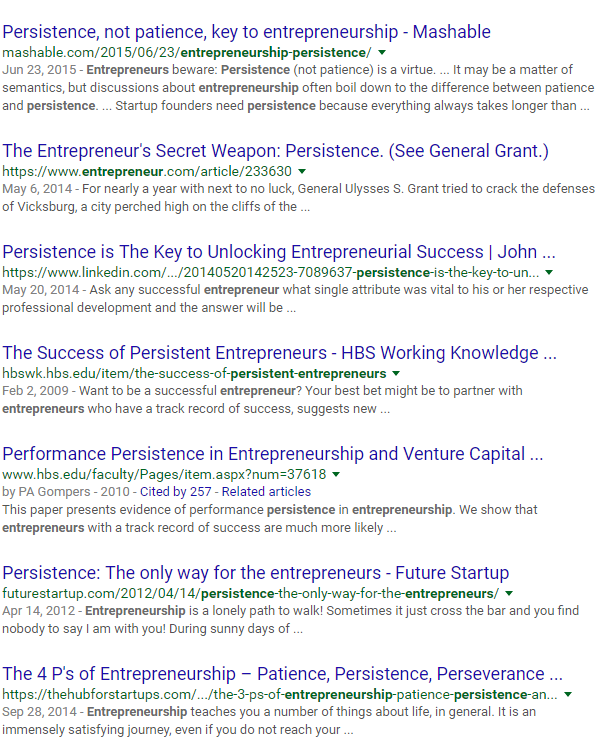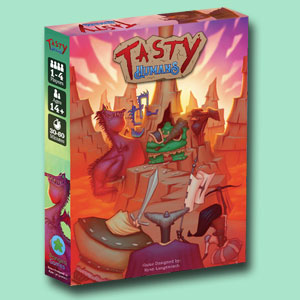Be Brave
If you’re game developer, you’re an entrepreneur. Even if you’re not in it for money, the amount of physical material, labor, and funding you’ll need to organize to make your game real will make you into an entrepreneur. It’s a scary prospect. Game developers, who specialize in creating products people want but don’t need, are especially vulnerable. As you’d expect, the Internet has capitalized on this fear, and is rife with blogs and thinkpieces ceaselessly extolling the virtues of persistence and hard work. Just take a look at these Google results…

Looking for more resources to help you on your board game design journey?
Here you go: no email required!
Like this writing style?
Check out my latest blog on marketing here.
It’s baked into our culture, especially the United States, how important hard work and persistence are. All these articles are just confirming what most of already know. It’s idle palaver that just so happens to generate a lot of ad revenue. You don’t need to learn how to work hard and persist: you need to learn how to be brave.
Hard work and persistence are the results of being highly motivated to do something worthwhile. We procrastinate because we don’t know what to do or because we’re too scared to do it. If it’s direction you lack, here’s a guide on how to find it. If you’re scared, though, that’s a different beast entirely.
If you’re scared, I want you to know two things:
- I’m scared, too
- You’re not alone.

- I’ve had more sleepless nights than I can count. You’re not the only one who is scared.
Let’s have an honest examination of some of the terrifying things about game development.
- Any creative endeavor opens up a part of you to the world you probably haven’t shared before.
- Criticism can take the wind out of your sails really quickly, whether they’re valid complaints or whining from gamers who didn’t read the rules.
- Critics themselves can be anyone: friends, family, people on the Internet with 50,000 YouTube subscribers, random fly-by-night trolls who go around giving 1s on BoardGameGeek.
- You’re probably going to be dealing with a lot of money. You might lose quite a bit.
- If you plan on taking your idea to Kickstarter, that’s a tough road for first timers.
- You can do everything right and still not please people.
- You have to learn a lot of skills from scratch, including product testing, marketing and promotion, accounting, and fulfillment.
I could go on for a long time, but you get the point. There’s a lot of very valid things to be afraid of.
Don’t squash your fears. Spell them out. Write them down and look at them with honesty and sober understanding. Being brave is not about being fearless, it’s about understanding the nature of your fears and facing them with dignity. Fear is often what stops us before we reach true greatness. No amount of rattled-off platitudes about putting in 70 hour weeks or doing the same thing for 10 years until you get your big break will sate these fears. We face our fears through self-reflection first and persistence second.
You can do this. I believe in you.






